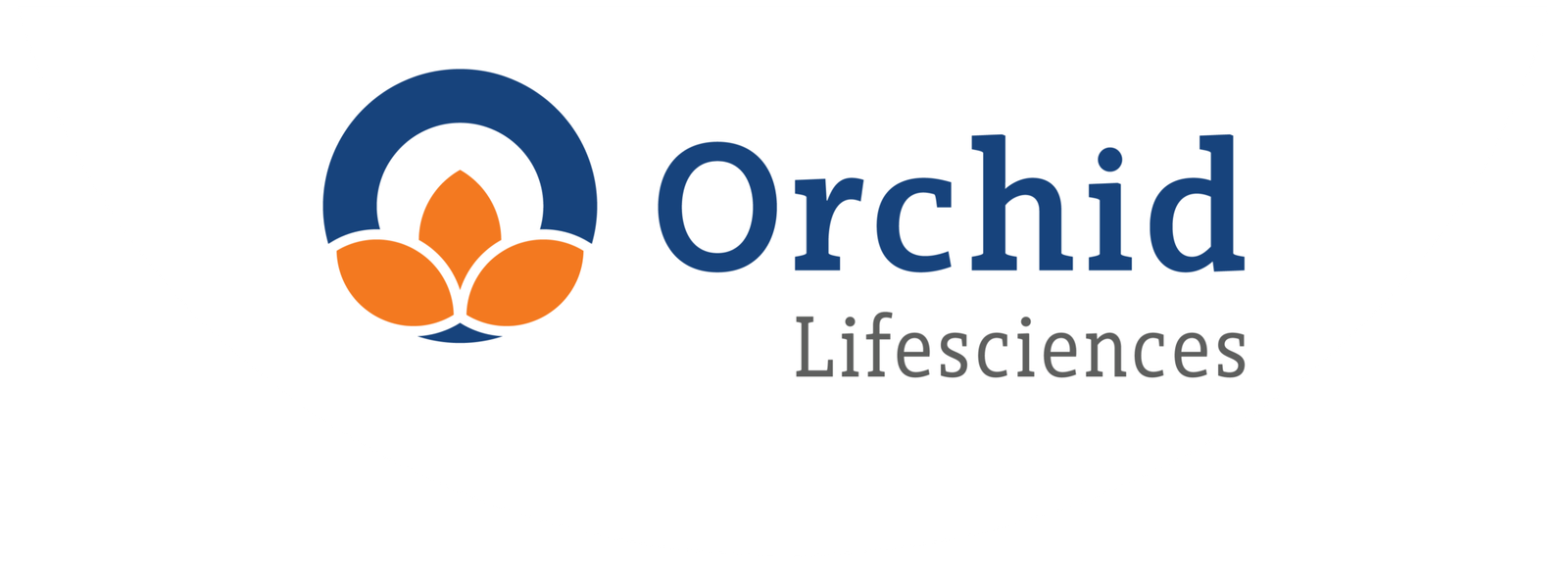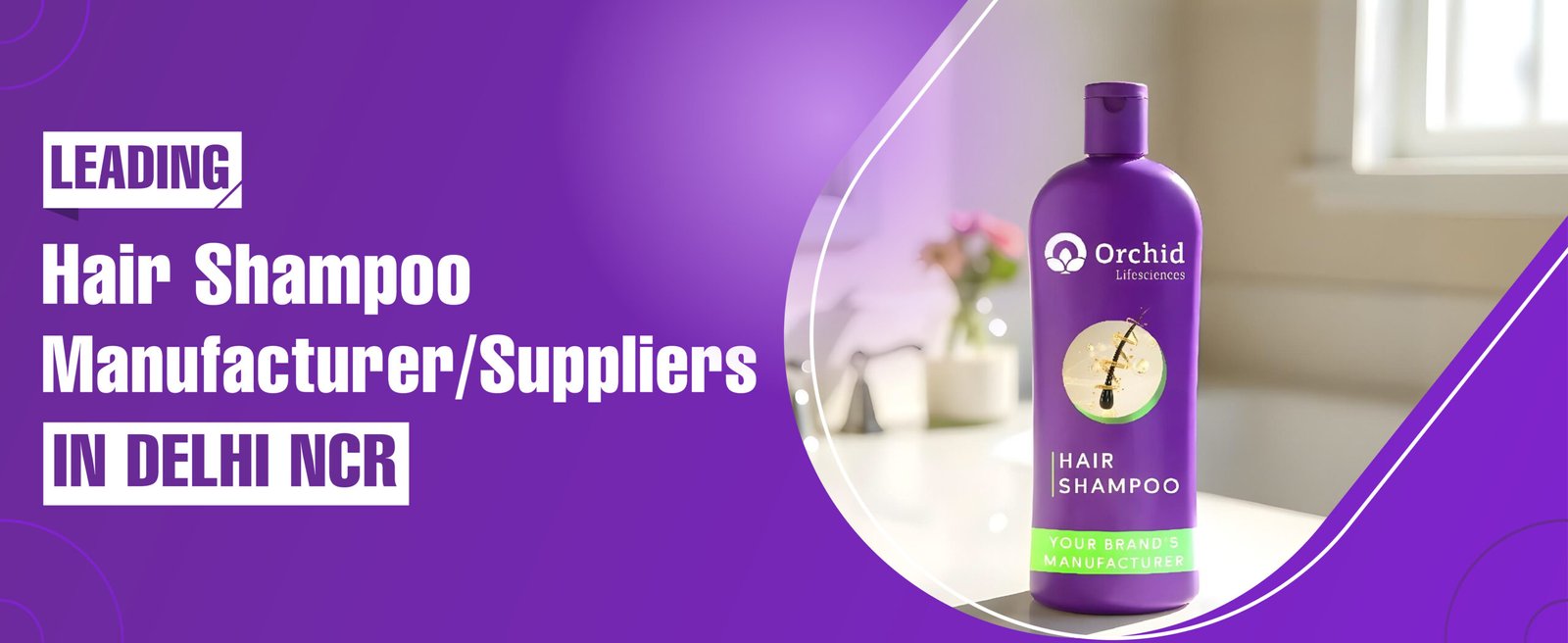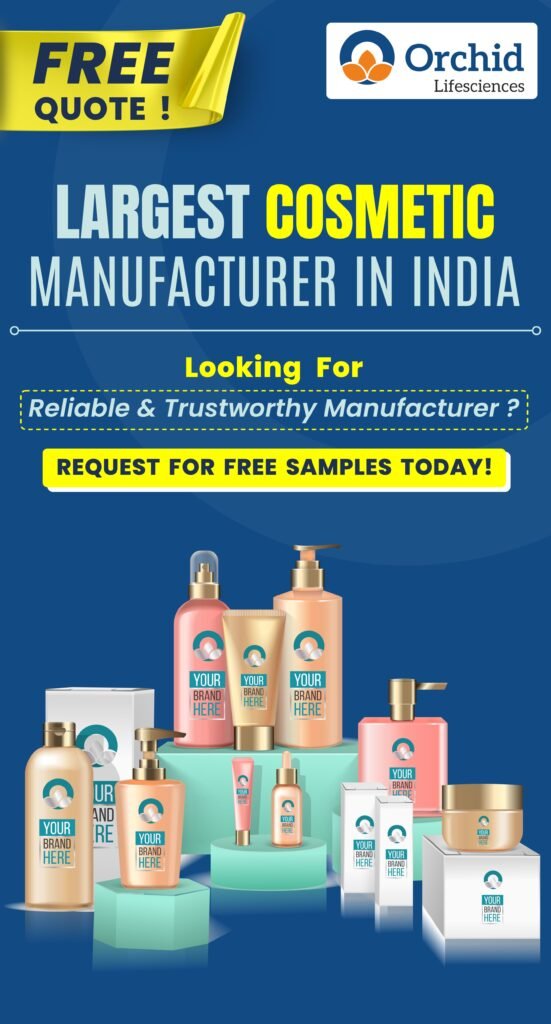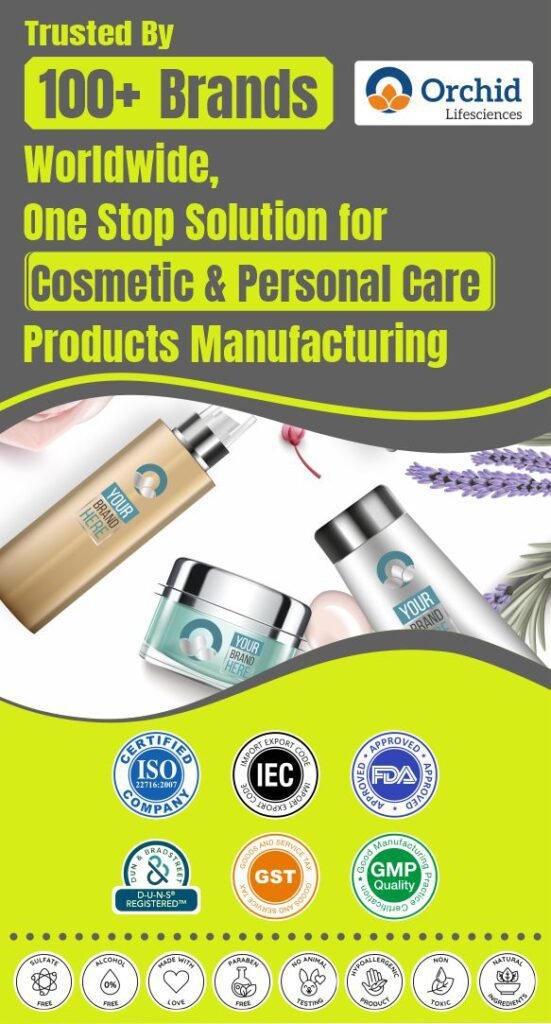Delhi NCR is a thriving hub for shampoo manufacturers in New Delhi play a significant role in catering to individual’s diverse hair care needs. These manufacturers specialize in a wide range of products, including hair shampoo in New Delhi and innovative solutions like hair colour shampoo. From daily-use shampoo to specialized products, the region’s companies serve domestic and international markets as reputed exporters of hair care products.
Many leading brands and companies, including those operating as Private Limited (Pvt. Ltd.) firms, provide premium services and products. Whether you are looking for customized solutions, bulk orders or partnerships, the manufacturers in this area ensure quality and innovation in every bottle.
For more details about their offerings or collaborations, contact us to explore the best options in the hair care industry.
The Shampoo Manufacturing Industry in Delhi NCR
The shampoo manufacturing industry in Delhi NCR has its roots in the early 1990s when multinational companies began setting up production units to cater to the growing demand for personal care products in India. Over the years, the region has emerged as a key manufacturing hub due to its proximity to raw material suppliers, well-developed infrastructure and access to a vast consumer market. Initially dominated by traditional herbal and Ayurvedic shampoos, the industry has diversified significantly to include advanced formulations such as anti-dandruff, volumising and sulfate-free.
1. Increasing Demand:
Rising urbanisation, higher disposable incomes and greater awareness about personal hygiene have fueled the demand for shampoos. Consumers increasingly seek premium and specialized hair care solutions with the expanding middle class.
2. Innovation:
The industry has witnessed significant research and development investments, resulting in innovative products catering to diverse hair care needs. Natural and organic formulations infused with herbal ingredients like aloe vera, neem and argan oil are gaining popularity.
3. Beauty Trends:
Social media and celebrity endorsements have amplified the importance of well-groomed hair, driving the adoption of products that promise salon-like results at home. Furthermore, trends such as “clean beauty” and “sustainability” have encouraged brands to introduce eco-friendly packaging and cruelty-free formulations.
4. Current Market Trends:
Delhi NCR’s shampoo market is experiencing a shift toward premiumization, with an increasing preference for sulfate-free, paraben-free and personalized hair care products. E-commerce platforms have played a significant role in expanding the reach of niche brands and fostering direct-to-consumer models. Another emerging trend is the rise of start-ups offering customizable hair care solutions based on hair type, texture and scalp conditions. Additionally, demand for multi-functional products, such as 2-in-1 shampoos with conditioning properties or enriched with UV protection is rising.
Leading Shampoo Manufacturers in Delhi NCR
The Delhi NCR region is home to several prominent shampoo manufacturers catering to domestic and international markets. These companies excel in their unique approaches to hair care, leveraging innovation, quality, and market demand to sustain their leadership.
1. Orchid Lifesciences
Orchid Lifesciences is one of the most reputable companies in the personal care industry, specializing in producing the finest quality shampoos tailored to diverse hair care needs. Shampoos manufactured at Orchid Lifesciences are known for their advanced high-tech manufacturing facilities and a special R&D team with 40+ years of experience in the industry, who personally focus on producing herbal & Ayurvedic shampoos enriched with natural ingredients like neem, aloe vera and tea tree oil. Orchid Lifesciences emphasizes sustainability by using eco-friendly packaging and performing cruelty-free practices. Shampoos manufactured by Orchid Lifesciences are widely distributed across pharmacies, salons and multiple online platforms worldwide. This commitment to balancing traditional herbal remedies and modern formulations has earned it a loyal consumer base.
Orchid Lifescience’s astonishing manufacturing facility is spread over 5600 sq.m and equipped with ultra-modern state-of-the-art automated manufacturing and filling machinery, which employs 150+ employees and can cater to various batch sizes ranging from 25 to 2000 kgs per batch. Along with it, Orchid’s manufacturing unit can fill up to 25 55 Lakh tubes per month, 5 to 15 Lakh bottles per month, and 5 to 12 Lakh jars monthly. Amazing RIGHT? If you also want to skyrocket your brand in the care industry, contact Orchid Lifesciences TODAY!! Via the mediums mentioned 👇
Address:
Plot No. 68-72, Tribhuvan Industrial Estate, Road No.11, Nr. Kathwada GIDC, Kathwada, Ahmedabad, Gujarat-382430
Contact:
Email – marketing@orchidlifesciences.com
Website:
https://orchidlifesciences.com/
2. Tresemmé
Tresemmé, a globally recognized brand, has established a significant manufacturing presence in Delhi NCR. Renowned for its salon-quality hair care products, Tresemme targets consumers seeking professional-grade results at home. Its product range includes shampoos for various purposes, such as volumizing, smoothing, and protecting coloured hair. Tresemmé’s innovation incorporates advanced ingredients like keratin, biotin, and argan oil to address specific hair concerns. The brand’s marketing strategies, including celebrity endorsements and partnerships with fashion events, have further elevated its stature in the market. Its manufacturing facility in the region ensures consistent quality and wide availability.
3. WOW Skin Science
WOW Skin Science, a homegrown brand, has risen to prominence for its focus on natural and chemical-free formulations. The company’s shampoos, free from sulfates, parabens, and silicones, have become a choice among health-conscious consumers. WOW’s product lineup includes onion-based shampoos for hair fall control, apple cider vinegar for scalp health, and coconut milk shampoos for hydration. The brand leverages digital platforms for direct-to-consumer sales. It has gained a strong following among millennials and Gen Z. WOW’s manufacturing units in Delhi NCR adhere to stringent quality standards, ensuring eco-conscious and cruelty-free production.
4. Selsun Suspension
Selsun Suspension is a specialized shampoo brand focusing on anti-dandruff solutions. Manufactured by reputed pharmaceutical companies in the Delhi NCR region, Selsun’s selenium sulfide-based formulation is clinically proven to effectively treat dandruff and related scalp conditions. Its medicated shampoos cater to a niche segment of consumers seeking therapeutic hair care solutions. Selsun Suspension is often recommended by dermatologists, adding to its credibility. The product is widely available in pharmacies and online platforms, and its consistent quality makes it a trusted name in the anti-dandruff shampoo market.
Manufacturing Processes and Technologies
The production of shampoos is a meticulous process that combines science, technology, and innovation. Manufacturers in Delhi NCR employ advanced methods to ensure quality, consistency and efficiency, catering to evolving consumer demands.
1. Raw Materials Used in Shampoo Production
Shampoo manufacturing relies on a mix of active ingredients and auxiliary substances, including:
Surfactants: Core cleansing agents like sodium lauryl sulfate (SLS) and sodium laureth sulfate (SLES), though increasingly replaced with milder options such as coco-glucoside in sulfate-free shampoos.
Conditioning Agents: Ingredients like silicones, panthenol, and hydrolysed proteins enhance softness and manageability.
Herbal Extracts and Oils: Natural additives such as neem, aloe vera, tea tree oil, and argan oil cater to the growing preference for organic and Ayurvedic formulations.
Preservatives: Compounds like parabens and phenoxyethanol ensure shelf stability by preventing microbial growth.
Fragrances and Colours: Synthetic or natural scents and dyes improve the sensory appeal of the product.
Water: A significant component used as a solvent to dissolve other ingredients, constituting up to 70% of the formulation.
2. Production Processes: From Formulation to Packaging
Formulation: Chemists design formulations tailored to specific hair care needs, balancing the concentration of active ingredients for optimal performance. Laboratory testing ensures that the formula meets safety and efficacy standards.
Mixing and Blending: Raw materials are combined in large industrial mixers, ensuring uniformity. Heat is often applied to dissolve certain ingredients and homogenise the mixture.
Quality Control: The batch undergoes stringent quality checks to assess viscosity, pH balance, and microbial content. Adjustments are made if necessary to meet regulatory and brand standards.
Filling and Packaging: The shampoo is transferred to filling machines that precisely dispense it into bottles or sachets. Modern machinery ensures minimal wastage and contamination. Labels and branding are applied, and the products are packed for distribution.
3. Use of Modern Technologies in Manufacturing
Automation: Advanced automated systems control mixing, filling, and packaging, reducing human error and increasing efficiency. Real-time monitoring and sensors ensure consistent quality across batches.
Eco-Friendly Practices: Manufacturers adopt sustainable practices using biodegradable or recyclable packaging materials. Water-efficient processes and renewable energy sources are becoming integral to operations.
Digitalisation and Data Analytics: Data-driven insights optimize production schedules and reduce downtime.
Intelligent inventory management systems ensure the timely procurement of raw materials.
Customized Production: Technologies like artificial intelligence enable the creation of personalized shampoos based on consumer data.
Regulatory and Quality Standards
Stringent regulatory and quality standards govern the shampoo manufacturing industry to ensure product safety, efficacy, and compliance. In Delhi NCR, manufacturers adhere to national and international guidelines to meet consumer expectations and legal requirements.
1. Regulatory Bodies and Their Role
FSSAI (Food Safety and Standards Authority of India): While primarily overseeing food products, FSSAI ensures that cosmetic-grade ingredients like herbal shampoos meet safety requirements if derived from food sources.
BIS (Bureau of Indian Standards): The BIS sets comprehensive standards for cosmetics, including shampoos, under IS 7632. These standards specify permissible ingredients, labelling requirements, and testing procedures to ensure consumer safety.
CDSCO (Central Drugs Standard Control Organisation): As the regulatory authority for drugs and cosmetics, CDSCO ensures that shampoos classified as medicated or therapeutic comply with the Drugs and Cosmetics Act of 1940.
Ayush Ministry: For Ayurvedic or herbal shampoos, the Ayush Ministry regulates product formulations, ensuring they adhere to traditional practices and safety guidelines.
Quality Control Measures in Shampoo Production
Manufacturers implement rigorous quality control at every stage of production to maintain high standards:
Raw Material Testing: Ensures ingredients’ purity, potency, and safety.
In-Process Checks: Monitors consistency, viscosity, ph levels, and microbial limits during production.
Batch Testing: Samples from each batch undergo stability testing to assess shelf life, fragrance retention, and performance under varying conditions.
Packaging Integrity: Ensures bottles and sachets are leak-proof and maintain the product’s quality. Additionally, third-party audits and certifications, such as ISO 9001 for quality management systems, further validate the reliability of production processes.
2. Compliance with National and International Standards
Shampoo manufacturers in Delhi NCR aim to meet both domestic and global requirements to expand their reach:
National Standards: Compliance with BIS and Ayush guidelines ensures products are market-ready in India.
International Standards: Certifications such as GMP (Good Manufacturing Practices) and adherence to EU and FDA guidelines enable export opportunities.
Eco-Certifications: Manufacturers adopting sustainable practices often pursue certifications for cruelty-free, organic, and biodegradable products.
Challenges Faced by Shampoo Manufacturers in Delhi NCR
Though thriving, the shampoo manufacturing industry in Deg faces challenges that hinder its growth and efficiency. These issues span supply chain disruptions, market competition, and sustainability concerns, which require strategic solutions to ensure long-term success.
1. Supply Chain Issues
Raw Material Sourcing: A key challenge is procuring quality raw materials, including surfactants, natural oils and herbal extracts. The dependency on imports for certain chemicals and natural ingredients exposes manufacturers to price fluctuations, import duties and delays caused by geopolitical tensions or global supply chain disruptions. Additionally, the rising preference for organic and natural ingredients has intensified demand, straining existing supply chains further.
Logistics and Transportation: Delhi NCR’s manufacturers often encounter logistical issues, including traffic congestion, fluctuating fuel prices and seasonal disruptions like monsoons. These factors delay the transport of raw materials and finished products. Maintaining an efficient and cost-effective supply chain becomes challenging, particularly for smaller manufacturers competing with established players.
2. Competition in the Market
Local vs. International Brands: Delhi NCR’s market is highly competitive, with numerous local brands competing alongside global giants like Orchid Lifesciences. International brands with superior marketing budgets, advanced R&D, and extensive distribution networks often dominate the premium and mass-market segments. Local manufacturers find it challenging to match the brand loyalty and trust established by these multinational players.
Price Sensitivity: Indian consumers are extremely price-conscious, particularly in the mid-range and economy segments. Balancing affordability with quality is a significant hurdle for local manufacturers, especially when international brands leverage economies of scale to offer competitive pricing.
Emerging Niche Players: Start-ups and D2C brands have disrupted the market with innovative offerings, such as personalized shampoos and eco-conscious packaging. These niche players, often more agile and digitally savvy, quickly capture consumer attention, adding to the competition.
3. Sustainability and Environmental Concerns
Packaging Waste: Shampoo packaging, predominantly plastic, has drawn criticism for its environmental impact. As consumers grow increasingly aware of sustainability, manufacturers face pressure to adopt biodegradable, refillable, or recyclable packaging solutions. However, these sustainable alternatives often come with higher costs, making them less accessible for smaller manufacturers.
Energy and Resource Use: Shampoo production requires significant water and energy. Adopting greener technologies, such as water-efficient systems or renewable energy sources, entails substantial upfront investment, which can deter smaller companies.
Compliance with Environmental Regulations: The government’s push for stricter carbon emissions and waste management regulations further challenges manufacturers. Adapting to these regulations often requires overhauling existing processes and investing in sustainable innovations, which can be time-consuming and costly.
Opportunities in the Shampoo Manufacturing Sector
The shampoo manufacturing sector in Delhi NCR is poised for substantial growth, driven by evolving consumer preferences, globalisation, and technological advancements. These trends offer numerous opportunities for manufacturers to innovate and expand their reach.
1. Growing Demand for Natural and Organic Shampoos
With increasing awareness about the adverse effects of synthetic chemicals in personal care products, consumers are gravitating toward natural and organic alternatives.
Herbal Ingredients: Products enriched with natural extracts like neem, aloe vera, tea tree oil and hibiscus are witnessing high demand. Ayurvedic shampoos, in particular, cater to India’s traditional preferences and appeal to international markets seeking exotic herbal formulations.
Chemical-Free Formulations: The rise of “clean beauty” has created a market for shampoos free of sulfates, parabens, silicones, and artificial fragrances. These products cater to health-conscious consumers, including those with sensitive scalps.
Certifications and Credibility: Obtaining organic certifications, such as ECOCERT or USDA Organic, can further enhance product appeal and tap into premium market segments.
2. Potential for Export Markets
Delhi NCR’s strategic location, coupled with India’s robust trade networks, makes it an ideal hub for exporting shampoos.
Rising Global Demand: Countries in Southeast Asia, the Middle East, and Africa are emerging as lucrative markets for Indian shampoos due to their affordability and perceived quality. Ayurvedic and herbal products, in particular, enjoy strong demand in these regions.
Regulatory Compliance: Manufacturers adhering to international quality standards, such as GMP and FDA guidelines, can access premium markets in Europe and North America.
Online Marketplaces: Platforms like Amazon and Alibaba have made it easier for small and medium-sized manufacturers to reach global customers directly, bypassing traditional distribution barriers.
3. Opportunities for Innovation
The growing sophistication of consumer demands has paved the way for product and packaging innovations:
Customised Products: Advances in technology and data analytics have enabled manufacturers to offer personalised shampoos tailored to specific hair types, concerns, and preferences. This customisation trend aligns with the rising demand for unique, targeted solutions.
Eco-Friendly Packaging: As sustainability becomes a priority, manufacturers can invest in innovative packaging solutions such as biodegradable bottles, refillable pouches, or solid shampoo bars. These eco-conscious efforts appeal to environmentally aware consumers and align with global sustainability goals.
Multi-Functional Products: The demand for convenience has fueled interest in multi-functional shampoos, such as 2-in-1 with conditioning properties, anti-dandruff solutions with scalp hydration benefits, or UV-protective formulations.
Innovative Ingredients: Incorporating advanced ingredients like keratin, biotin, and probiotics presents opportunities to cater to niche demands for hair repair, growth stimulation, and scalp health.
Future Outlook of Shampoo Manufacturers in Delhi NCR
The future of shampoo manufacturing in Delhi NCR is promising, driven by increasing consumer demand, technological advancements, and evolving preferences. Over the next 5–10 years, the industry is expected to witness significant growth, innovation, and transformation.
1. Predicted Industry Growth in the Next 5-10 Years
Market Expansion: The Indian shampoo market is projected to grow at a CAGR of 6–8%, with Delhi NCR playing a pivotal role due to its strong manufacturing infrastructure and access to both domestic and international markets.
Demand for Premium and Specialised Products: As disposable incomes rise, consumers are expected to spend more on premium and niche products such as sulfate-free, anti-ageing, and colour-protective shampoos.
Global Opportunities: Export potential, especially for Ayurvedic and natural shampoos, will continue to expand, fueled by growing demand in regions like the Middle East, Southeast Asia, and Africa.
2. Technological Advancements and Their Impact on Manufacturing
Automation and AI: Adopting automated systems and artificial intelligence will streamline production processes, improve efficiency, and reduce errors. AI-driven analytics will also enable better forecasting of demand and customization of products.
Sustainable Manufacturing: Technologies that reduce water usage, energy consumption, and carbon emissions will become integral to production processes. Initiatives such as solid shampoos and zero-waste manufacturing will gain traction.
Advanced Formulations: Research into bioactive ingredients, probiotics, and plant-based surfactants will enable the creation of highly effective, eco-friendly shampoos catering to specific hair and scalp needs.
3. Role of Consumer Behaviour in Shaping Future Trends
Shift Toward Natural and Ethical Products: Consumers increasingly prioritise natural, organic and cruelty-free shampoos, encouraging manufacturers to invest in sustainable sourcing and certifications.
Personalisation: Demand for personalised shampoos tailored to individual hair types and concerns will drive innovations in formulations and packaging.
Digital Influence: Online shopping trends and social media influence will play a critical role in shaping consumer preferences. Brands that effectively use digital platforms for marketing and direct-to-consumer sales will gain a competitive edge.
Conclusion
The Hair shampoo manufacturers in Delhi NCR have established a significant presence in the hair care industry by offering a vast range of hair shampoo products. Whether you are looking for onion shampoo, herbal hair solutions or hair dye shampoo, the shampoo suppliers in Delhi, especially in areas like Okhla Industrial Area, Bawana Industrial Area, and North West Delhi, cater to all needs. From natural hair care to medicated shampoo in Delhi, these manufacturers deliver products that suit every hair type and preference.
Many top shampoo manufacturers including well-known names like Orchid Lifesciences and more, are reputed for their quality and innovation. Shampoo prices for buying in Delhi can vary depending on the manufacturer and the product, but the range of offered products is diverse and impressive. Whether it’s khadi-inspired shampoos in various areas of Delhi, such as Noida, or products currently available through platforms like TradeIndia, the options are endless.
To find the best hair shampoo in Delhi, you can filter your search based on your requirements using tools like the Trust Stamp feature on TradeIndia, which helps verify suppliers who have been verified for quality and reliability. With Shampoo Manufacturers and Shampoo Manufacturers in Delhi offering competitive prices and innovative products, customers can easily find their desired hair care shampoo or medicated shampoo. For inquiries and collaborations, many of these companies, often Pvt Ltd, operate from key locations like 6 Nehru Place, DSIDC, and other industrial hubs, making it simple to get the latest price from suppliers and access top-quality hair products.
In conclusion, the shampoo products in Delhi and the list of hair shampoo suppliers ensure that shampoo prices for buying remain competitive while providing excellent quality. Whether for export or local, the offerings from popular shampoo manufacturers around Delhi, such as Okhla Industrial Estate and beyond, highlight the region’s robust manufacturing and supply chain.






